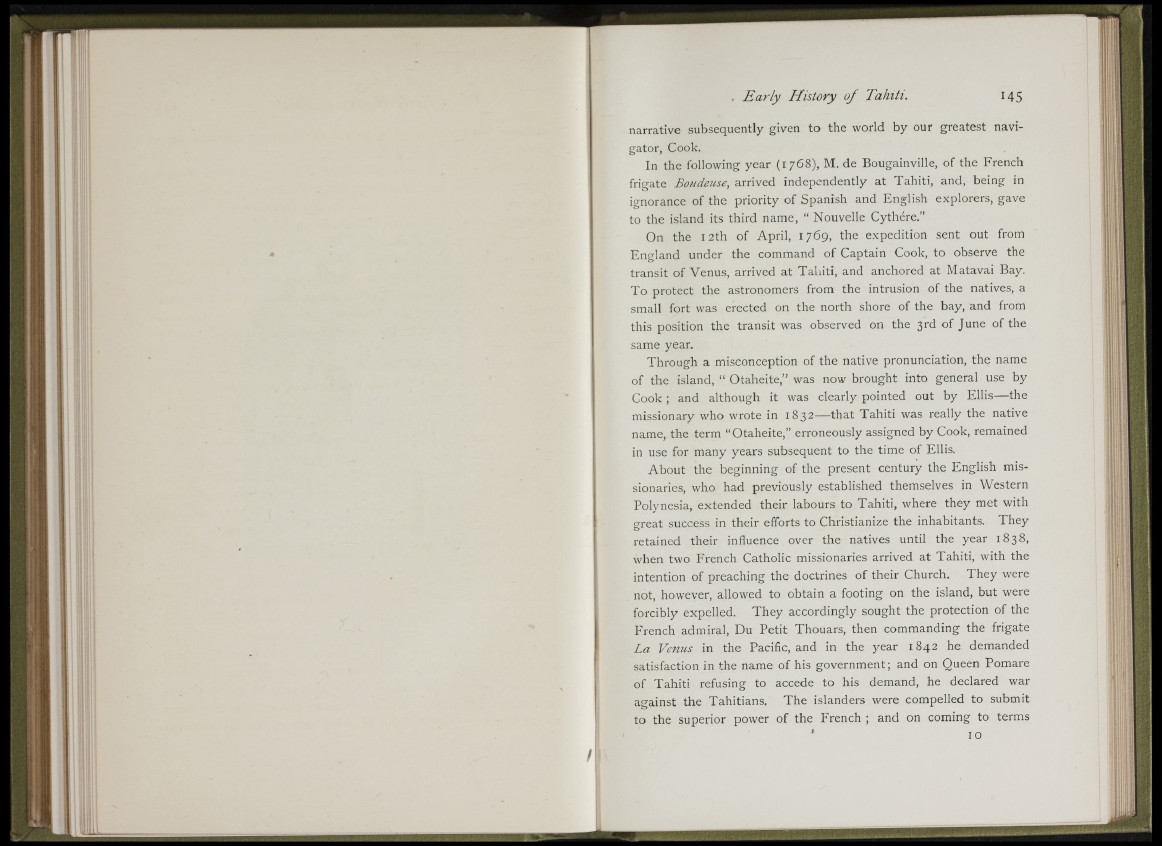
:iii ii'
IP III
ill:
!
iS i i i ' I
, Early History o f Tahiti. 145
narrative subsequently given to the world by our greatest navigator,
Cook.
In the following year (1768), M. de Bougainville, of the French
frigate Boiideuse, arrived independently at Tahiti, and, being in
ignorance of the priority of Spanish and English explorers, gave
to the island its third name, “ Nouvelle Cythere.”
On the 12th of April, 1769, the expedition sent out from
England under the command of Captain Cook, to observe the
transit of Venus, arrived at Tahiti, and anchored at Matavai Bay.
To protect the astronomers from the intrusion of the natives, a
small fort was erected on the north shore of the bay, and from
this position the transit was observed on the 3rd of June of the
same year.
Through a misconception of the native pronunciation, the name
of the island, “ Ctaheite,” was now brought into general use by
Cook ; and although it was clearly pointed out by Ellis— the
missionary who wrote in 1832— that Tahiti was really the native
name, the term “ Ctaheite,” erroneously assigned by Cook, remained
in use for many years subsequent to the time of Ellis.
About the beginning of the present century the English missionaries,
who had previously establi.shed themselves in Western
Polynesia, extended their labours to Tahiti, where they met with
g;reat success in their efforts to Christianize the inhabitants. They
retained their influence over the natives until the year 1838,
when two French Catholic missionaries arrived at Tahiti, with the
intention of preaching the doctrines of their Church. They were
not, however, allowed to obtain a footing on the island, but were
forcibly expelled. They accordingly sought the protection of the
PTench admiral, Du Petit Thouars, then commanding the frigate
La Venus in the Pacific, and in the year 1842 he demanded
satisfaction in the name of his government; and on Queen Pomare
of Tahiti refusing to accede to his demand, he declared war
against the Tahitians. The islanders were compelled to submit
to the superior power of the French ; and on coming to terms
’ 10